States
An Arjuna Who Became The Bhagavad Gita: Captain S.P.Kutty (1940-2024)
Aravindan Neelakandan
Nov 27, 2024, 09:44 PM | Updated Jan 22, 2025, 10:51 AM IST
Save & read from anywhere!
Bookmark stories for easy access on any device or the Swarajya app.
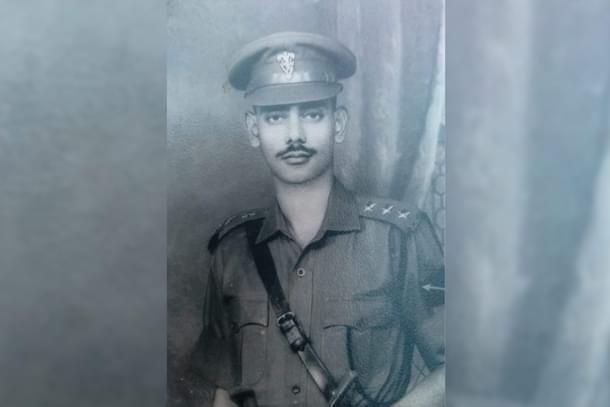
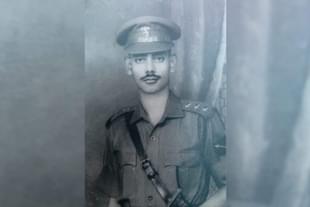
The year was 1964. A fresh engineering graduate from Kanyakumari district had just received a letter from his mother.
Dear son, ... Please throw away the pictures of Devils you have and throw away the books of Devil. Here we have all accepted Jesus Christ as our saviour. We have become Christians. More importantly we are getting good alliances for you from Christian families. When you come here next, we will discuss this issue and settle your marriage. ... with love Amma.
But though asked by his biological mother, he would reject the path of religious conversion and instead would chose to serve Bharat Mata by enlisting in the Indian army. Deployed to Punjab during the 1965 war, he witnessed first-hand the battle field and contributed his best in his field as an engineer to defend the nation against external aggression.
However, while he was away, a different kind of invasion was taking place back home in the south. Predatory proselytisers targeted his family, exploiting their vulnerabilities. By the time he returned from his military service and began his career as an engineer with the Tamil Nadu Electricity Board, his family except two of his siblings had succumbed to the relentless pressure and embraced Christianity.
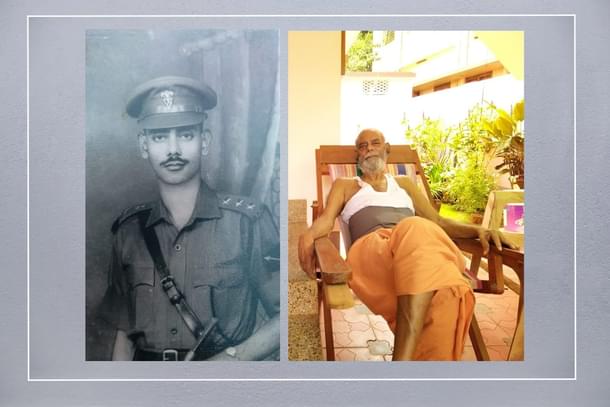
The young man's memory flickered with fragments of the initial proselytising manoeuvres. He recalled the converted relative presenting his father with a Bible, urging him to delve into its pages. A question had ignited within the young son then: "Why not explore Hindu literature with the same fervour? Why not immerse yourself in the wisdom of the Bhagavad Gita?" he had dared to ask.
Before his father could offer a response, the evangelical relative interjected, his voice laced with a dismissive tone. "You mean that book which incites familial conflict?" he scoffed. "Brother, the Bible is a testament to love, not war."
This encounter proved to be a pivotal moment for the young boy, the one who would later be known as "Captain S.P. Kutty," a name that would resonate with three generations of Hindus in Kanyakumari district. It was then that he resolved to explore the Gita for himself, to unlock its profound teachings.
He would become a champion of Hindu intellectualism, carrying the Gita to every household, empowering his community to not merely counter the evangelists but to confidently confront them, armed with the knowledge and wisdom of their own spiritual heritage.
Easier said than done. While in cities like Madras there were discourses on Gita for everyone, like the ones made by Swami Chinmayananda, in Kanyakumari district there were almost none.
Undeterred, Captain Kutty sought out the wisdom of the Gita, finding solace in a Tamil edition adorned with the insightful commentary of Swami Chitbavananda of Sri Ramakrishna Tapovanam. Yet, as he delved into its pages, a disheartening realization dawned upon him: he could grasp the commentary, but the Sanskrit verses themselves remained inscrutable.
His quest for understanding led him to a rare Gita pravachan, held within a Brahmin enclave. But his hopes were swiftly dashed when he was met with a harsh rejection. 'You are a Nadar,' he was told, 'this gathering is not for you.'
The sting of caste-based discrimination was not new to him. Even as a ten-year-old boy, selling greens in the so-called 'upper-caste' quarters of the temple town of Suchindrum, he had been subjected to similar prejudice. "Leave the greens and move along," they had commanded, believing his touch would somehow taint the very produce he had nurtured with his own hands.
The discrimination had followed him to the classroom as well. In his school, ironically run by the London Mission, he and other 'lower-caste' students were segregated, forced to eat their lunch outside while the "upper caste students" dined within.
These experiences fuelled a fire within Captain Kutty. He refused to be defined by the rigid confines of caste. He would break these barriers, not with force, but with the unwavering strength of his spirit and his unquenchable thirst for knowledge. He would master the Gita, not just for himself, but for all those who had been denied access to its wisdom.
The relentless discrimination he faced, coupled with the insidious encroachment of predatory evangelism, forged within him an unyielding resolve. Like Arjuna on the battlefield of Kurukshetra, he was ready to confront the challenges that lay ahead. He understood the intricate struggles faced by all sections of Hindu society, and he was determined to be their Gandeeva-dhari.
With unwavering perseverance, aided by the guidance of Swami Mathurananda Maharaj of Vellimalai, he embarked on a journey of self-discovery and empowerment. He immersed himself in the self-study of Sanskrit and the verses of the Bhagavad Gita, once a closed book, now flowed effortlessly from his lips. Gita became his spiritual mother, a constant source of strength and solace, a shield against the relentless assaults on his Dharma and Rashtra.
He found a steadfast companion in his wife, Rohinibai, a Hindu woman he married despite the disapproval of his converted parents. She would later become a pillar of the Hindu renaissance movement in Kanyakumari district, her unwavering support a beacon of hope.
A resurgence of Hindu consciousness was sweeping through the district. Every Sunday, homes transformed into vibrant centres of learning, where the Gita and other Hindu texts were passionately explored.
These gatherings were not mere children's classes; they were spaces for adults to reconnect with their heritage, to understand the sacrifices their ancestors had made to preserve their faith against the tides of conversion.
Captain S.P. Kutty, alongside a dedicated team of like-minded individuals – Sri Krishnamurthy ji of Vivekananda Kendra, 'Tulsi Ram' who rendered the entire Bhagavad Gita into accessible quatrains, Dr. Pa. Arunachalam, a retired Tamil scholar from Malaysia University, Vidwan Subbaiah, a Tamil Pandit and school teacher, to name a few – traversed the district, bringing these empowering teachings to every village.
This grassroots movement, fuelled by selfless dedication, gradually coalesced into a structured Sunday school for Hindu children, eventually blossoming into the esteemed Hindu Dharma Vidhya Peetham. From the seeds of individual struggle and resistance, a powerful movement for cultural and spiritual preservation had emerged.
Captain S.P. Kutty's fight against conversion extended beyond the realm of education. He took the battle to the streets, countering Christian pamphlets with his own powerful publications. One particularly impactful piece addressed the insidious claim that Hindus were 'devil worshippers'.
His efforts ignited a spark of resistance within the Hindu community. No longer would they shrink into silence when confronted with missionary attacks. Armed with Captain Kutty's well-reasoned arguments, they found their voice and defended their faith with newfound confidence.
However, his courageous stand came at a price. In 1982, when Hindu women were tragically molested at Mandaikaddu, a coastal village and a sacred site known as the Sabarimala of women, widespread riots erupted. Fanatical elements within the Christian community saw this as an opportunity to eliminate Captain Kutty.
He became a target, narrowly escaping multiple assassination attempts. Thrilling chases on motorbikes, ambushes on the road – his life was constantly under threat. The rumour that he, being a military man, always carried a revolver, sometimes gave his attackers pause.
Yet, even the presence of his family did not deter these zealots from attempting a murderous attack. Despite the constant danger, Captain Kutty remained undeterred, his commitment to his cause unwavering.
The Hindu society emerged from the riots of 1982 with a newfound resilience. They had made it clear that they would no longer be passive victims of aggression.
But Captain Kutty's vision extended beyond mere resistance. He yearned for a Hindu society fortified by intellectual and spiritual strength. He delved deep into the history of the district, shedding light on forgotten heroes and narratives. His work on Iyya Vaikundar, a revered social reformer and spiritual leader, was ground-breaking. He highlighted the anti-colonial nature of the 'Avatar of Kanyakumari'.
The cover of his book was a historical indictment in itself. It depicted a soldier striking Iyya Vaikundar with a rifle butt, a scene drawn from the 'Akhila Thirattu'.
The detail was significant: only East India Company soldiers, not native troops, carried such weapons. With this subtle visual, Captain Kutty exposed the hypocrisy of colonial "social justice", reclaiming history and celebrating indigenous resistance.
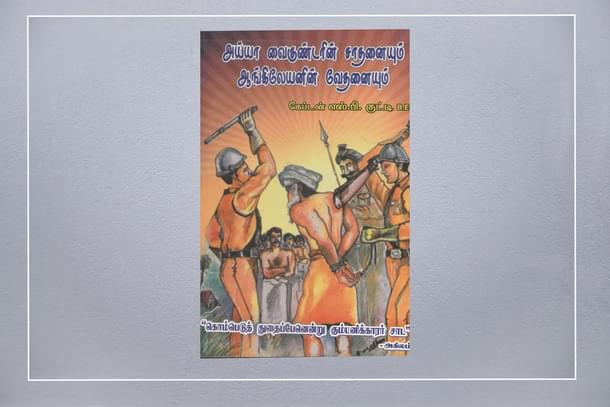
Throughout the mid and late 1980s, he worked closely with the Sangh Parivar movement, lending his voice and intellect to their cause. A gifted storyteller, he captivated readers with his weekly serialized novel in Vijaya Bharatam, a Sangh Parivar magazine.
Titled "Entru Kanbom Engal Sindhuvai" (When shall we see our Sindhu again?), the novel, inspired by H.V. Seshadri's The Tragic Story of Partition, recounted the trauma of a Hindu family during the partition and culminated with the RSS thwarting a plot by the Islamists to seize control of India.
The novel became a sensation, serving as a powerful recruitment tool for the Sangh Parivar. He was also the Vice President of Tamil Nadu BJP. But for an uncompromisingly principled man with straightforward blunt talk like him, politics with its art of nuances and subtleties was never the field.
His other works, like "Arise Mother who gave us birth!" (Ezhunthidu Engalai Iinravale), drew inspiration from his own life - story of a young soldier defending the nation against Pakistani aggression while his family faced the predatory encroachment of missionaries that threatened to destroy a budding village romance. In total, he authored sixteen books, each a testament to the grandeur of Hinduism and the forgotten chapters of India's struggle for freedom.
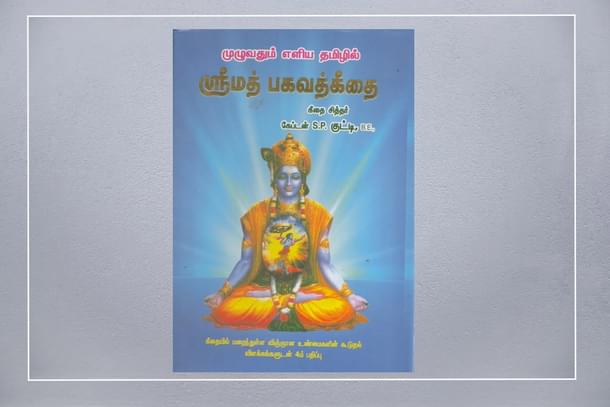
In his later years, Captain Kutty dedicated himself to disseminating the wisdom of the Bhagavad Gita, particularly among the youth. His comprehensive commentary on the Gita stands as a landmark achievement, systematically dismantling the notion of birth-based varna and emphasising the inherent equality enshrined in its teachings. His bold stance against discrimination, though earning him criticism from some within the Sangh Parivar, solidified his reputation as an unparalleled Dharmic warrior.
His book on Kashmir is one of the best and most comprehensive work on the subject available in Tamil. Authentic and with insider information it proves how Kashmir belongs only to India.
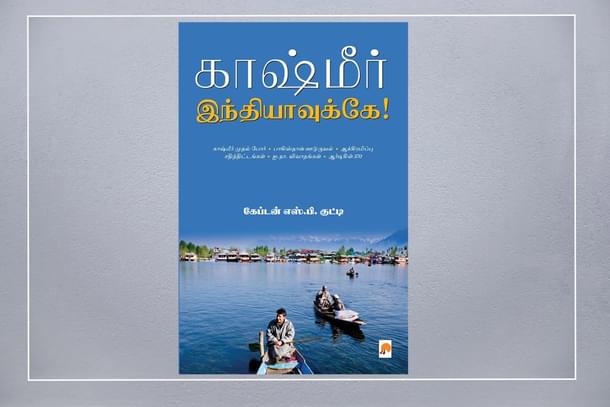
He lived his life in accordance with the Upanishadic call to "keep moving," aptly naming his house "Charaiveti." He was a tireless soldier of Rashtra and Dharma, inspiring all who crossed his path. He embodied the very essence of the Gita, earning him the affectionate title of "Bhagavad Gita-Siddha" from his young disciples.
A true Karma Yogi, he remained humble, his life a testament to selfless service. He felt his life complete when he saw the magnificent hri Rama temple at Ayodhya.
On November 26, 2024, Captain S.P. Kutty peacefully shed aside his physical frame, leaving behind a legacy that will continue to inspire generations to come. He was the Arjuna who became the Gita, its wisdom coursing through his veins, his life a symphony of action, devotion, and unwavering commitment to truth and righteousness.





